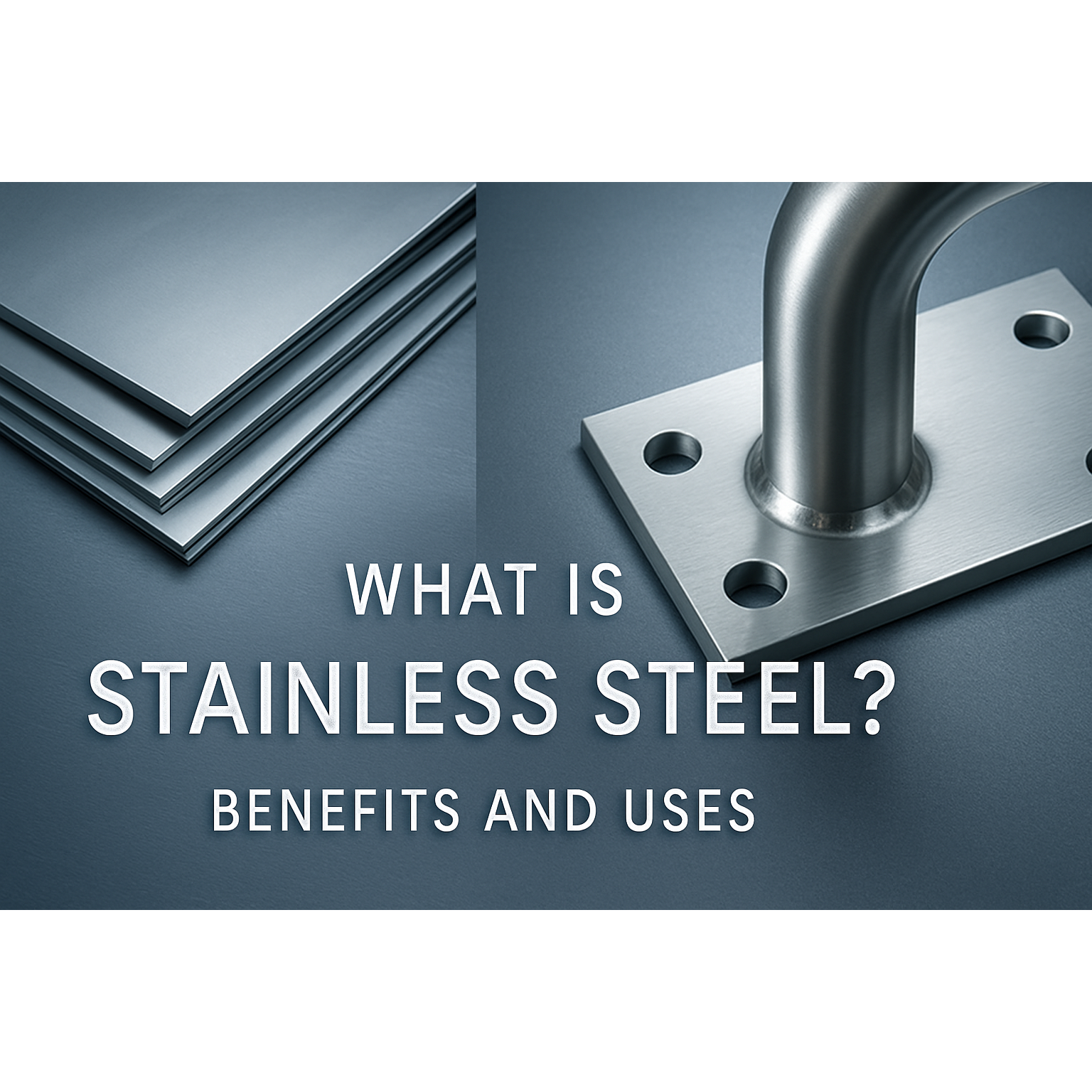What Is Stainless Steel? Uses & Benefits What Is Stainless Steel? Stainless steel is an iron-based alloy containing at least 10.5% chromium, which forms a protective surface layer, making it highly resistant to rust and corrosion. Unlike regular steel, stainless steel does not stain, tarnish, or rust easily, even in wet and challenging environments. Key Benefits of Stainless Steel Corrosion Resistance: The chromium content protects against rust and most chemicals, making stainless steel suitable for kitchens, factories, and outdoors. Durability & Strength: Stainless steel is tough, impact-resistant, and retains its strength in extreme temperatures—ideal for structural and industrial uses. Hygiene: Its smooth, non-porous surface doesn’t harbor bacteria, making it the first choice for food processing, hospitals, and kitchens. Aesthetic Appeal: The bright, polished look of stainless steel adds value to equipment, architecture, and home appliances. Low Maintenance: Easy to clean, requiring little upkeep compared to other metals. Recyclability: Stainless steel is eco-friendly and can be fully recycled without losing quality. Where Can Stainless Steel Be Used? Kitchen Equipment: Sinks, countertops, utensils, trolleys, and appliances. Construction: Structural beams, railings, bridges, and building facades. Medical: Surgical tools, hospital equipment, and laboratory surfaces. Industrial: Tanks, pipelines, chemical plants, and power generation equipment. Automotive & Transportation: Car parts, railways, ships, and aircraft. Everyday Products: Water bottles, jewelry, and tools.
Chat with us on WhatsApp
×
This is your website preview.
Currently it only shows your basic business info. Start adding relevant business details such as description, images and products or services to gain your customers attention by using Boost 360 android app / iOS App / web portal.
https://www.kulwalironandsteel.com/latest-update/stainless-steel-uncovered-the-metal-that-shapes-modern-living/0
"Stainless Steel Uncovered: The Metal that Shapes Modern Living"

2025-09-05T09:20:30
What Is Stainless Steel? Uses & Benefits What Is Stainless Steel? Stainless steel is an iron-based alloy containing at least 10.5% chromium, which forms a protective surface layer, making it highly resistant to rust and corrosion. Unlike regular steel, stainless steel does not stain, tarnish, or rust easily, even in wet and challenging environments. Key Benefits of Stainless Steel Corrosion Resistance: The chromium content protects against rust and most chemicals, making stainless steel suitable for kitchens, factories, and outdoors. Durability & Strength: Stainless steel is tough, impact-resistant, and retains its strength in extreme temperatures—ideal for structural and industrial uses. Hygiene: Its smooth, non-porous surface doesn’t harbor bacteria, making it the first choice for food processing, hospitals, and kitchens. Aesthetic Appeal: The bright, polished look of stainless steel adds value to equipment, architecture, and home appliances. Low Maintenance: Easy to clean, requiring little upkeep compared to other metals. Recyclability: Stainless steel is eco-friendly and can be fully recycled without losing quality. Where Can Stainless Steel Be Used? Kitchen Equipment: Sinks, countertops, utensils, trolleys, and appliances. Construction: Structural beams, railings, bridges, and building facades. Medical: Surgical tools, hospital equipment, and laboratory surfaces. Industrial: Tanks, pipelines, chemical plants, and power generation equipment. Automotive & Transportation: Car parts, railways, ships, and aircraft. Everyday Products: Water bottles, jewelry, and tools.
2025-09-05T09:20:30

Submit Your Enquiry